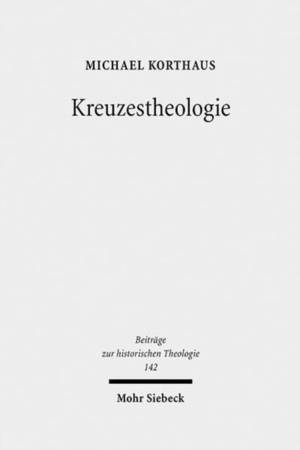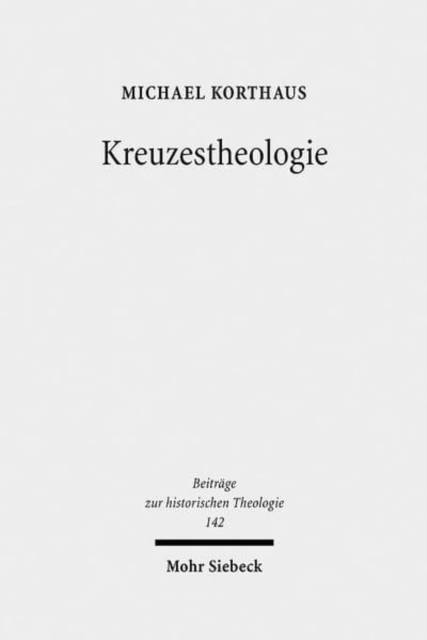
- Retrait gratuit dans votre magasin Club
- 7.000.000 titres dans notre catalogue
- Payer en toute sécurité
- Toujours un magasin près de chez vous
- Retrait gratuit dans votre magasin Club
- 7.000.0000 titres dans notre catalogue
- Payer en toute sécurité
- Toujours un magasin près de chez vous
Kreuzestheologie
Geschichte Und Gehalt Eines Programmbegriffs in Der Evangelischen Theologie
Michael Korthaus
146,45 €
+ 292 points
Description
English summary: The theology of the cross is a term which is used often in Protestant theology. It represents the aim of concentrating the theology of the Reformation, which results from the New Testament, on the essence of the Christian faith, the crucifixion of Christ. Michael Korthaus shows that the current importance of the theology of the cross is a modern phenomenon which has its roots mainly in early 20th century Luther research and which ultimately branches out into a large number of surprisingly different ways of thinking and conceptions in regard to the theology of the cross. In the first part of the book, the author describes various theologies of the cross, all of which differ to a large extent, such as those of Kahler, Iwand, Barth, Ebeling, Moltmann and Jungel, from the perspective of the history of theology. The second part provides a contribution to a current theology of the cross from the perspective of systematic theology. German description: Kreuzestheologie ist ein wichtiges Schlagwort in evangelischer Kirche und Theologie. Mit seiner Verwendung verbindet sich durchweg der hohe Anspruch, christologische Grundeinsichten der paulinischen Theologie in der Perspektive v.a. des jungen Luther zu gegenwartsrelevanter Geltung zu bringen. aKreuzestheologie wird so stets als neutestamentlich ausgewiesene Reformationstheologie fur die jeweilige Gegenwart ins Spiel gebracht. Dieser Anspruch legt die Vermutung nahe, bei eder' Kreuzestheologie handele es sich um einen Denkweg mit klaren historischen Anknupfungspunkten und einheitlichem systematischem Profil. Die theologische Wirklichkeit sieht allerdings ganz anders aus: Tatsachlich gibt es eine ganze Reihe z.T. sehr unterschiedlich konzipierter Kreuzestheologien. Michael Korthaus zeigt, dass das, was heute unter aKreuzestheologie im Sinne eines spezifischen theologischen Denkansatzes verstanden wird, weniger ein im historischen Sinne genuin reformatorisches, sondern ein durchaus modernes Konzept ist, das aus der Lutherforschung der zwanziger Jahre des vorigen Jahrhunderts in die Systematische Theologie eingewandert ist und hier im Dienste des Bemuhens steht, protestantische Gegenwartstheologie ausdrucklich biblisch-reformatorisch zu profilieren. Der Autor stellt zunachst in theologiegeschichtlicher Perspektive so unterschiedliche Kreuzestheologien wie die von Kahler, Iwand, Barth, Ebeling, Moltmann, Jungel u.a. dar. Der zweite Teil des Buches leistet in systematisch-theologischer Perspektive einen Beitrag zu einer gegenwartig verantworteten Kreuzestheologie.
Spécifications
Parties prenantes
- Auteur(s) :
- Editeur:
Contenu
- Nombre de pages :
- 431
- Langue:
- Allemand
- Collection :
- Tome:
- n° 142
Caractéristiques
- EAN:
- 9783161493379
- Date de parution :
- 31-12-07
- Format:
- Livre relié
- Format numérique:
- Genaaid
- Dimensions :
- 160 mm x 20 mm
- Poids :
- 811 g

Les avis
Nous publions uniquement les avis qui respectent les conditions requises. Consultez nos conditions pour les avis.






